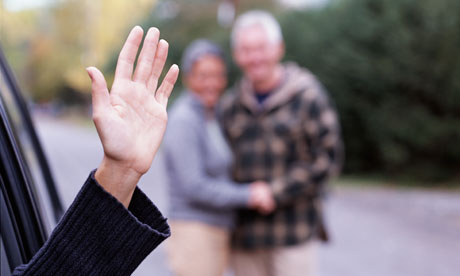Many people visiting Turkey for the first time ask about unspoken social Turkish rules. That's totally understandable: who wants to make an unavoidable faux pas or wind up in an embarrassing situation? Others want to ensure they do not upset locals and ruin their own experience of the country. In this article, we talk about social customs and traditions you will encounter during day-to-day life in Turkey.
However, we'd like to reassure you: Turks are flexible for foreigners. All they want you to do is enjoy the country and as ingrained in their culture, they embrace strangers with open arms. So, do not worry about making social mistakes. You won’t be the first foreigner to do it, nor the last. As long as you show respect, Turks handle each situation with ease and friendly vibes.
13 Unspoken Turkish Rules
1. Don’t leave early
Leaving before midnight means you don’t consider your hosts to have done a good job. Turkish people enjoy long visits, talking and drinking raki into the night, with children nodding off on the sofa or staying up late as a treat. When visiting a friend in their Kalkan property, for example, make sure you don't make a beeline for the door as soon as the coffee's been drunk, your hosts might well be offended.

2. Embrace the community spirit
Local community spirit is an integral part of Turkish social life, and while in countries like the UK, we would not dream of visiting our neighbour without an appointment, the opposite happens in Turkey. Neighbours often visit each other for tea, or knock on the door with plates of food. If this happens, the unspoken rule is when returning the plate, fill it with something you have made like cakes or biscuits.
Maintain discretion for finances because it is rude to flash wealth in low-income places, or traditional villages. Turks will just see you as being snobby and more pious Turks insist it is a lack of respect for their religion. Not only that, flashing the cash to prove worth also makes you a target for scammers and thieves.

3. Know when to say when
Between meals, after a meal, first thing in the day and last thing at night: tea is a social lubricant, and you'll notice Turks drink litres and litres of Turkish tea, or cay. You’ll notice that when you’ve finished your tea your host will refill your glass. Instead of politely drinking until your bladder is fit to burst, leave your teaspoon lying across the glass to signal “no more”.

4. Oldest goes first, every time
Turks treat elderly people with a lot of respect. So, when someone enters the room, they approach the eldest first. On special occasions like Bayram, people also kiss their hand and raise it to their forehead. When out and about, make way for older people: give up seats on public transport, and if they appear to be struggling, help them. Also remember, in more formal circles, people address men by their first name and then add bey. For women, the word hanim follows their first name. If they have a professional title, use that instead. In Turkey, this applies to doctors, professors, lawyers, engineers, and managers.

5. Never turn up empty-handed
Make sure you bring something with you when you’re invited to someone’s home. Flowers and chocolates will work (check with the florist which arrangements are best - you don’t want to find yourself taking flowers more traditionally seen at funerals!), or something from your home country. Pastries like baklava are a popular gift, and sweets if there will be children. Be careful about bringing alcohol unless you know for sure that your hosts drink it.

6. Take your shoes off
Remove your shoes outside or just inside the front door. Even if your host (knowing your foreign ways) tells you to keep them on, it's polite to insist you remove them. If in doubt: look to see what your host and other guests are doing in this respect. Your host might offer you a pair of slippers to wear inside, removing any confusion. Whether you're visiting Istanbul apartments or friends in Bodrum villas, the shoes-off rule is universal throughout Turkey.

7. Dinner’s on the host
When going out to dinner with Turkish friends, expect it to be an all-night affair, so don’t make plans to eat and dash. Turkish hospitality dictates the host picks up the tab. In fact, sharing a bill is alien in Turkish society, and any offer to pay will be declined. The best idea is to thank the host, then issue a reciprocal invitation.
And while you're out: remember to avoid blowing your nose at the table, and if using a toothpick, cover it up with your other hand because it is rude for other diners to see what you dig out of your teeth.

8. Politics are a no-go
Turks are passionate about their country and often have strong views. Insulting Turkey, the flag or founding father Ataturk is very offensive. Along the same lines, be respectful of the Turkish flag - don’t sit on it, or drag it around, or use it as a hanky.

9. Personal space is seen a little differently
Turks make friends easily, so the boundaries ingrained in western culture are not recognised. Don’t be surprised if you get a kiss on both cheeks, whether a man or women. The one exception to this rule is conservative Turkish women, who wear headscarves and value personal space hence will just shake by the hand unless you are a close friend.

10. Sport's a useful icebreaker
If the conversation flags, ask questions about Turkish history and culture. Turks love their heritage. Football is very popular and most people support Galatasaray, Besiktas, or Fenerbahce, so ask about their team’s recent fortunes.

11. Everyone has a title
Men are usually addressed by their first name and then “bey”, so Cameron Deggin would be “Cameron Bey”. A woman’s first name is followed by “hanim”. If they have a professional title you should use that instead. In Turkey this doesn’t just apply to Doctor or Professor - but with lawyers (“avukat”), engineers (“muhendis”) or managers (“mudur”). You would use the title followed by “bey” or “hanim”.

12. Water for luck
A damper version of throwing salt over your shoulder, this Turkish custom ensures a smooth journey. When someone embarks on a journey, you should pour water behind them or their vehicle, saying “su gibi git, gel,” which means “Go and return, like water”.

13. Take care with gestures
There are a few gestures you might use without thinking that are quite offensive in Turkey. Making an “o” shape with your forefinger and thumb demonstrates homosexuality - steer clear of that one. Clicking your tongue is a gesture of dismissal, and the “got your tongue” gesture that you do to little kids - making a fist and sticking your thumb between your forefinger and middle finger - is the equivalent to the middle finger in Turkey.

Other things to remember
Weight Isn’t Off-Topic
Perhaps the biggest surprise is Turks openly discuss your weight with you and will remark if you have put on kilos, hence an extra tire. They mean no malicious harm because it is an acceptable topic in Turkey, so don’t take it personally. The good news is it works in reverse and they also comment and admire weight loss.
Respect Places of Worship
This is one mistake many tourists make. When entering a mosque, dress respectfully. So, men should wear trousers and women should cover their head, upper arms, torso, and legs. Likewise, maintain silence even if it is outside prayer time which happens 5 times a day. If at or near a graveyard, also maintain respect and silence.
Some short sharp don’ts…
- Blowing your nose or picking your teeth during a meal is VERY rude.
- Don’t put your feet up while sitting, and try not to show the bottom of your feet to others.
- Don’t point with your finger at someone.
- Chewing gum while having a conversation or at public gatherings is rude.
- Swearing and public drunkenness is a big no-no.
While some of these rules can seem confusing or difficult to remember, bear in mind that Turks are hospitable people who will want you to feel comfortable and at home. They won’t care if you inadvertently make a few mistakes, as a foreigner they won’t expect you to know every nuance and will just be happy that you’re making an effort.
More Reading of Interest
More Social Turkish Traditions: In this article, we discuss 12 more unspoken Turkish rules for day to day living, and travelling around the country without being obvious. Including the importance of bread, the truth about the evil eye and superstitions about illness, this further insight into Turkey benefits all who plan to visit.
Things to know about Turkish Culture: Welcoming strangers from all around the world is just one aspect of Turkish culture that makes you smile and feel like a lifelong friend. This blog discusses other things to know about the culture and how it shines through in everyday living.
Expats Tell All: Many people who visit Turkey often return to buy a property and live here all year round. We asked some customers to tell us what shocked them the most when they transitioned from holidaymaker to a resident.








